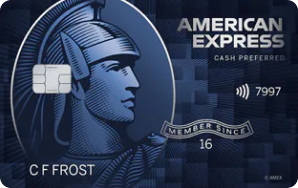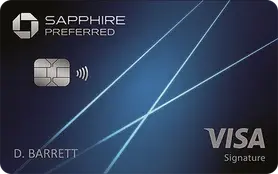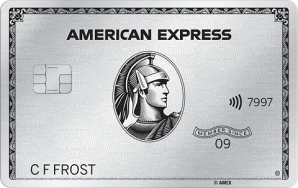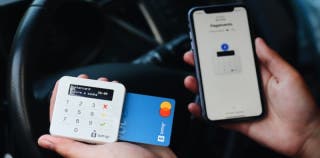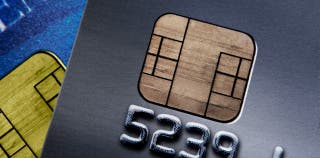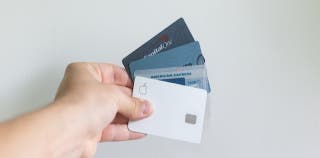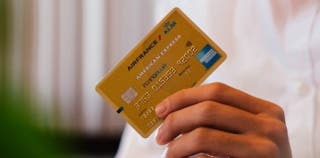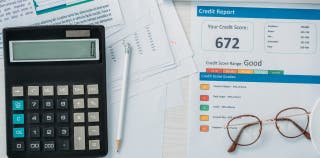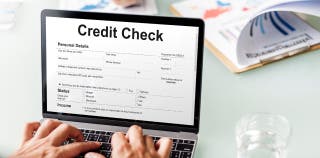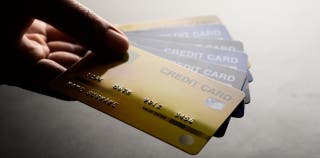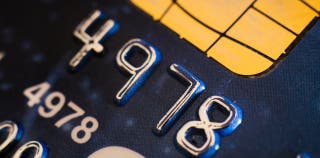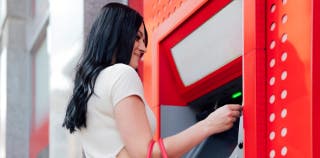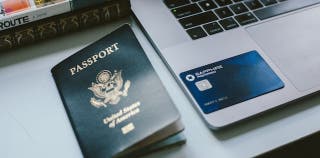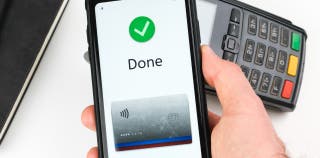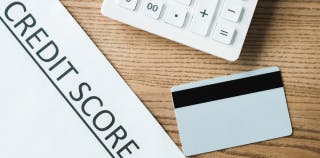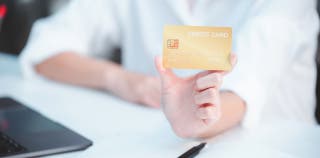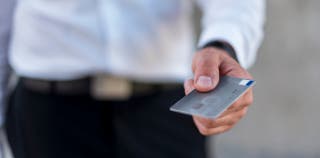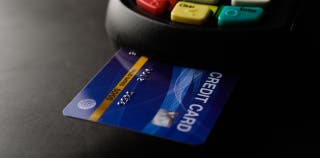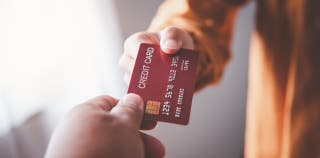How can I pay my credit card bill?
The most common ways to pay your credit card bill include:
- Paying online or by app using your bank account
- Paying over the phone with your bank details
- Paying in person by cash or check
- Paying by mail using cash or check
Pay online
Most credit card companies have an online platform that lets you log in and pay from anywhere you have an internet connection. You can link your bank account information to the online platform so the credit card company can easily withdraw your payments directly from your bank account.
Pay over the phone
Some credit card issuers offer you the option to make credit card payments over the phone. They usually ask for your bank account information, including your account number and routing number. From there, the card company can automatically withdraw the amount you decide to put toward your credit card payment that month.
Pay with cash or check
If you have a credit card from a financial institution that has a local branch in your area, you can also show up in person and make your credit card payment. For example, you could head to a Chase branch to pay your Chase credit card bill in cash.
If you want to pay by check, you can make a payment toward your credit card bill in person or by mail. If you plan to mail your payment, however, you’ll want to make sure you send it early so it can arrive well before your payment due date. Otherwise, you could be charged interest or late fees.
What is the best way to pay a credit card bill?
Your best option for paying your credit card bill depends on the methods your credit card company makes available to you.
However, one of the easiest ways to pay your credit card bill on time each month is to set up automatic payments using your bank’s online platform.
You can typically set up automatic payments based on the amount stipulated in your eBill, a paperless form of a bill that is delivered directly to your email or message center in the card company’s online platform.
If you aren’t sure how to set this up, it’s best to contact your bank for assistance.
Can I pay a credit card with another credit card?
Unfortunately, you cannot pay your credit card bill directly with another credit card.
However, if you’re short on funds to pay your credit card bill this month, there may be another viable workaround, but it will cost you. You could use one credit card to take out a cash advance at an ATM, and then use the cash to make a payment on your other credit card.
We say you could do this, but that doesn’t mean you should. It’s important to remember that interest rates for cash advances are incredibly costly and that you’ll pay an upfront cash advance fee (usually 5%) as well. Also, cash advances don’t have a grace period so you’ll be charged interest on the cash advance amount starting from day one.
Best practices for paying a credit card bill
By now we have established how you can pay your credit card bill, but there are many nuances and tricks to leveraging your credit by paying at the right time.
Whether you want to maximize your grace period or avoid interest and other fees, it’s important to know when to pay your bill for the best results.
Here are some of our tips for maintaining healthy credit and good payment habits:
- Pay on time each month
- Pay in full each month
- Pay your balances down as soon as possible
- Use automatic bill pay to stay up to date
- Change your due date to match your pay schedule
- Track your spending
- Use a credit calculator to plan ahead
- Review your account regularly for inconsistencies
Pay in full and on time, every time.
According to myFICO.com, your payment history is the most important factor and makes up 35% of your FICO credit score.
This means that on-time payments on your card can have a dramatic positive impact on your credit score, but late payments can have the opposite dramatic effect and damage your credit score in a hurry.
In addition to keeping your credit card payments up-to-date, you should also strive to pay your credit card balance in full each month. This can help you avoid paying credit card interest altogether, while also helping you avoid long-term credit card debt.
Pay sooner to improve your credit score
You can also raise your score if you pay your credit card bill earlier in the month.
Apart from helping to ensure you pay your bill on time, this can also help you keep your credit utilization rate (i.e. the amount of available credit you’re using) lower. Your credit utilization rate is another major factor in determining your credit score.
Always make sure you pay your credit card bill before the card issuer reports your balance to the three credit bureaus.
Pay ASAP to pay less interest on debt
Credit card interest accrues on a monthly basis, so waiting until your card’s due date to make a payment will leave you paying more interest on your debt than you have to.
If you are carrying a balance on your credit card each month and you want to save some money on interest, pay as much as you can toward your balance as early in the billing cycle as you can. This will lower your interest and save you money.
Set up automatic payments
If you’re worried you’ll forget about a credit card payment or you just want more peace of mind, you can also set up your credit card on autopay. Setting up automatic payments ensures at least the minimum payment on your card is made whether you remember or not.
Move your due date
Some credit card companies let you move your credit card due date to another date based on your preferences. Moving your due date can help you get your due date to a day of the month that works best for your finances, such as your regular payday.
Track your spending weekly
You can also track your spending much easier if you use a credit card for the bulk of your everyday purchases and bills. Tracking your spending can help you figure out where your money is going each month, and whether you are spending too much in discretionary categories like groceries, dining out, or entertainment.
Use a credit card calculator
Using a credit card calculator can also be smart if you need to find out information about your credit card debt, such as how much interest you are paying or how long it will take you to become debt-free. The best credit card calculators can also help you figure out how much money you would save if you paid more than the minimum payment on your card each month.
Review your account statements
Using a credit card for purchases instead of cash makes it easy to see an overview of your regular spending in any given month. We recommend reviewing your account statements regularly so you can spot fraud on your accounts early on and potentially spot early signs of potential identity theft.
Understand your billing cycle: what is the best date to pay your credit card bill?
The best date to pay your credit card bill is always going to be before or on your due date.
However, there are some interesting points to paying during different parts of your billing cycle. Let’s take a look at the different dates you can spot each month relating to your credit card bill.
Statement date
Your credit card statement date is the date your formal credit card statement is generated by the credit card company in any given month. If you have an app for your credit card, you can typically see your monthly balance before a statement is issued.
If you go ahead and pay your bill in full on or before the statement date, you can avoid credit card interest and ensure your credit utilization ratio stays on the low end.
Due date
Your due date is the last date you have to pay your bill before interest is added to the account. You can pay your credit card bill on your exact due date and still avoid interest charges with this strategy as long as you pay your entire credit card balance on this date.
Reporting date
Your reporting date is the date your card issuer reports your balance to the credit bureaus.
When your balance is reported to the credit bureau it can ding your credit score and appear on your credit report if you have left bills unpaid or partially paid. Therefore it’s important to pay your balances down before they are reported to the credit bureau.
Most banks report to the credit bureaus after the due date. Sometimes your reporting date may fall on your statement date, but this isn’t always the case. You are unlikely to know the exact date your card issuer reports your balances, so it’s best to always pay as soon as possible.
When should you pay off your credit card balance?
Your credit card balance is the amount you owe on your credit card at any given time, and the ultimate goal of anyone with a credit card is to pay off their balance as soon as possible.
That said, each person’s financial situation is different. When you should pay your entire balance depends on what you’re trying to accomplish with credit, and whether you have the cash to pay your balance off in full.
In some cases, carrying a small balance can help build credit, but we don’t recommend this.
Generally speaking, you should strive to pay off your credit card balance each month on or after your statement closing date.
By not carrying a credit card balance from one billing period to the next, you can avoid paying credit card interest and minimize your chances of racking up long-term debt.
What happens if you pay a credit card bill late?
If you make your credit card bill payment beyond its due date, you likely won’t have any negative consequences right off the bat. This is because many card issuers don’t report late payments until they’re at least 15 or 30 days late.
If you accidentally make your payment a few days late and it only happens once, you may be charged a late fee but without seeing any negative impact on your credit score.
That said, the consequences can be more substantial. Many credit card companies will charge you a late fee when you pay your bill late, and they will also hit you with a higher penalty APR.
If you pay your bill late enough, your late payment will be reported to the credit bureaus and become a negative remark on your credit history. This can cause your score to take an immediate hit, and it could take months or years to repair it.
Can you pay multiple times per month?
Yes, it’s possible to pay your credit card bill multiple times per month without a negative impact on your credit score.
If you’re a cardholder who is worried about late bills or racking up credit card debt, it can make sense to pay your credit card bill several times per month. This is also easy to accomplish since most companies let you make regular payments toward your card balance online.
How much of my credit card bill should I pay?
Should you pay your full statement balance? Or, should you opt to make just the minimum payment on your card?
Here are some pros and cons that come with each of these strategies:
-
Pay the minimum:
Only paying the minimum amount on your credit card can free up cash if you are in a bind, but it will leave you paying more credit card interest each month and is a slippery slope that can lead you into a lifetime of long-term debt. Generally, we do not recommend making this a habit. While the minimum payment on your card is based on how much you owe and your interest rate, minimum payments are typically low and can be as little as $25 per month.
-
Pay the full statement balance:
If you pay the full statement balance on your card, you can avoid paying interest on your purchases, show you have good money management habits, and build credit. This move can also help you keep debt at bay, which can be beneficial for your finances over your lifetime.
-
Pay more than the statement balance:
You can also pay more than the statement balance, and this can make sense if you have new pending charges you want to cover or make it easier to pay your bill next month. This move can help you avoid interest charges and debt, and it can also help you avoid charging more than your credit limit. However, paying more than you owe will not help you build credit any faster than if you pay the full amount on time.



